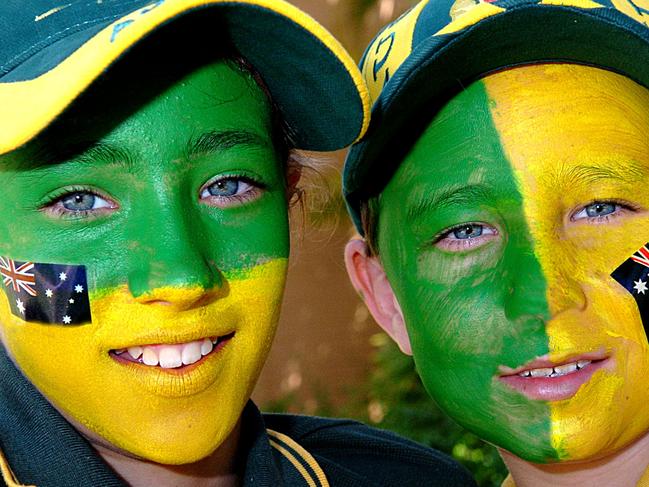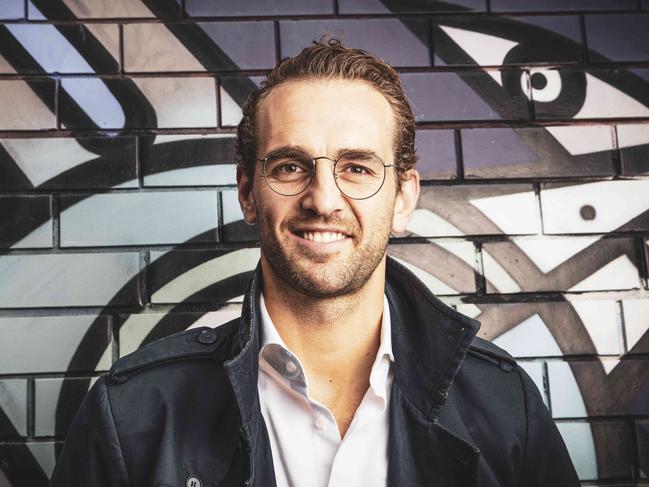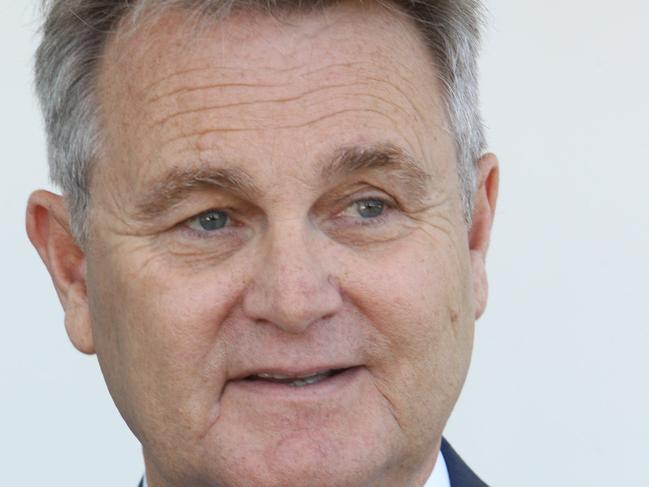Australia at 2020: Bastion Collective Ingenuity report looks at the state of the nation
A new snapshot of Australian attitudes as we approach 2020 reveals that we mostly agree with Scott Morrison on how good our country is – but there’s one big thing holding us back.
National
Don't miss out on the headlines from National. Followed categories will be added to My News.
- The most genius words of the 2010s
- What we Googled in the 2010s revealed
- Most shocking moments of the 2010s
- Australia, it’s time to find our own identity
During this year’s federal election campaign, Scott Morrison asked “How good is Australia?” and an overwhelming majority of us have just answered that it’s pretty great.
A new snapshot of Australian attitudes as we approach 2020 shows that nearly all of us – a whopping 91 per cent – believe Australia is a successful country, second only to the Scandinavian nations in terms of getting all the essentials right for a good life.
The idea that Australia is the “lucky country” has proven to be surprisingly enduring,
with 76 per cent of us agreeing it’s still accurate, 55 years after writer Donald Horne coined the term.
The findings come from a report released today by Bastion Collective, who quizzed 1127 Australians online about their views regarding where we are at as a nation. The profile of the respondents was managed to closely reflect the nation’s demography in terms of gender, age, location and cultural background.
MORE: Australia’s most admired revealed

Respondents were asked what they thought was world class about Australia, and while the top response was predictable – more than 80 per cent of us believe we have world class sporting competitors – the next most popular categories were surprising.
A majority of respondents said Australia had world-class healthcare (78 per cent), universities (68 per cent), arts and culture (59 per cent) and companies (57 per cent).
And while we might concur with the Prime Minister’s assessment of the country, few of us seem to think our politicians are much good, with only 17 per cent of survey respondents rating them as world class.
But whatever our views of Scott Morrison and his cohort, his reminder that we live in a good place struck a chord, Bastion Collective CEO Jack Watts said.
“A prospective prime minister came and spoke to us about something that we all unequivocally agree with, that ostensibly we all live in paradise, and we all got it,” he said.
“The positives unite us more than the negatives divide us in this country.”

Social commentator Bernard Salt said the ultimate measure of our national sentiment is that we don’t actually want to live anywhere else.
“It’s certainly very far from a perfect society, but I think most people would say in Australia that while there is a lot more to be done, there is still no other place where they would rather be,” he said.
And not just Aussies, he added.
“We are a very desirable nation for literally hundreds of thousands of people every year. What we have is the ability to attract people at that scale, year in, year out, so we must be doing something right.”
That immigration influx has changed Australia’s composition, but Mr Watts said Australia’s multicultural communities are united around one thing: they want to feel Australian.
“I don’t buy into the idea that our multiculturalism makes us more fragmented; in fact multicultural communities are the most united because they all share such an overriding sense of common purpose,” he said.
While survey respondents across the community rated the Scandinavian nations as the most successful overall, Australia was rated higher than a host of other nations, including Japan, China, South Korea, the US, Canada, New Zealand and the UK.
MORE NEWS: Most shocking moments of the decade
Scenes that changed David Attenborough forever
Jacinda Ardern’s surprise Aussie holiday

Views of the nation’s success seem to correlate with the success of the individual responders, if salary is any indication. Survey participants from households that earnt more than $150,000 per year were far more likely to rate Australia as “very successful” than participants from households earning less than $50,000 per year.
The survey showed belief in the great Australian dream of home ownership remains strong.
Despite increasing concerns about housing affordability, 54 per cent of survey respondents nominated it as their priority, with very little difference between generations.
Something we might call an alternative Australian dream – travelling the world and living a life without constraints – was priority one for a further 21 per cent of respondents.
This accords with ABS data, which shows Australians took 11.2 million trips overseas in the 2018-2019 financial year, a record figure that was more than double that of ten years ago.
The website World Atlas shows that we rank number nine in a global list of countries whose people travel the most. Finland comes in first.
WHAT’S HOLDING US BACK
Australia is being held back by a lack of common vision, Bastion Collective’s snapshot of the nation suggests.
Mr Watts said that as we approach 2020, we lack a “united, well defined national identity” – and the symbols that should bring us together are actually doing the opposite.
“The national anthem doesn’t unite us, the flag doesn’t unite us, our national day doesn’t unite us,” he said. “How can you have a sense of identity when the main symbols of that national identity are more divisive than they are unifying?”
“We need to have a long-term conversation about who we are and who we want to be as a nation.”
Bernard Salt said what Australia needed was the “grand vision”.
“The great challenge for political leaders and business leaders is to try and create a galvanised Australia in a time in history when society seems to be breaking down into tribes,” he said.
“I think that’s what political leadership needs to be doing; grand visioning, selling a common vision that everyone can buy into.
“There have been a lot of commentators on all sides of the spectrum talk about the breakdown into groups or silos or tribes, and the hard thing is to find a narrative that unifies people, that enables people to let go of their immediate problems, to buy into a bigger, more aspirational vision of the country as a whole. That will be one of the great challenges of the 2020s.”

Social researcher Nicky Bryson from PriceWaterhouseCoopers said the protests and activism of the ’60s presaged a time when Australia re-established its identity, as shown by the move to decimal currency, the adoption of Advance Australia Fair as the anthem and the reforms of the Whitlam era.
Today’s turmoil could prompt a comparable period of re-evaluation; a sort of “social revolution two,” she said.
“The traditional archetypes of the Australian are very masculine, and very white,” she said. “The ocker, the Anzac, the lifesaver … we’ve always been a proud masculine nation. How do we take the things we still love about ourselves, and modernise them for a country that looks and feels very different?”
Mr Watts offered similar observations.
“We need to update our understanding of who we are as a country. We’re still holding on to the values that were created in the ’70s and ’80s, when we first discovered ourselves as a country,” he said.
The Bastion Collective report suggests a certain lack of innovation is also holding Australia back. Fewer than one in ten of survey respondents said their dream was to run their own business, be their own boss or create something.
“Owning your own business is not the dream for most Australians and I think that comes back to our desire to lead a good comfortable life,” Mr Watts said. “We’re quite a conservative nation at heart and for us to take big risks scares a lot of Australians. And that’s why we see lower rates of entrepreneurialism and business ownership than you would expect.”
For Mr Watts, there’s a tension between being comfortable, and achieving more as a nation.
“As Australians, we’re good with good,” he said. “We aim to lead a good life. For us to go from ‘good’ to ‘great,’ we would have to sacrifice our enjoyment of the Australian lifestyle. The level of return we would get from being ‘great’, would mean that we wouldn’t spend as much time at the beach, watching our kids play sport, or down the pub.”
“Innovation and big ideas don’t necessarily come from what we are, which is a comfortable, suburban nation,” he said.

